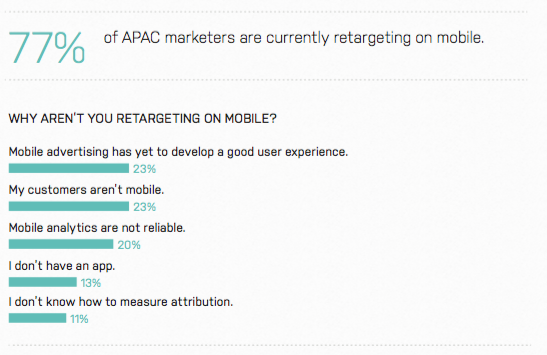Most Marketers Want to Alter Attribution Model; Japan Ad Spend Hit £44.88bn

In this weekly segment, ExchangeWire sum up key industry updates on ad tech from around the Asia-Pacific region – and in this edition: Most marketers want to alter attribution model; Japan ad spend hit £44.88bn; IAB AU release Invalid Traffic benchmarks; Mobile telco ad network opens up in India; Yahoo Storytellers lands in Singapore; and UnLtd unveil AU industry scheme for disadvantaged youth.
Most marketers want to alter attribution model
Measurement is increasingly an important focus for marketers in the region, with the majority planning to alter their attribution model this year.
While the majority currently depended on first- or last-click models, 74% of performance marketers planned to change their approach in 2017, revealed AdRoll's 2017 State of Performance Marketing Report. The study polled 350 respondents in Australia, New Zealand, and Singapore.
In fact, 30% of those in Australia said they would spend the bulk of their budget on measurement alone, the survey found.
It also uncovered growing adoption of programmatic, where 32% of respondents across the three markets spent more than half of their budget on the technology platform last year. Those who spent less than 10% of their budget on programmatic dipped from 40% to 6% over the past couple of years.
Some 69% expected their spending on programmatic to increase this year, the study said. Furthermore, more than 80% said programmatic advertising yielded greater return on investment (ROI) than traditional media buying.
Most of the marketers also were expanding their retargeting initiatives across devices, with 83% planning to increase their mobile retargeting spend in 2017. There were challenges, however, in this segment, where 23% said mobile ads had yet to offer a good user experience.
In assessing cross-device campaigns, marketers also pointed to other issues such as a perceived lack of consumers converting on mobile and an inability to track campaign performance.

Source: AdRoll's 2017 State of Performance Marketing Report
The report further pointed to a "resurgence" of email marketing; with 80% of respondents noting that their email campaigns were dynamic and based on user behaviours. This meant their email messages would contain specific content based on the actions a person had taken online.
"Over time, marketers evolved [email] to more behaviourally triggered campaigns that grouped users into similar audiences. Now, this trend is being taken even further with campaigns that include dynamic content personalised to the individual user", AdRoll said.
According to the report, most marketers ran campaigns with multiple marketing objectives that varied from business to business. Loyalty sends were the most popular, followed by lead generation, and cross-sell offers.
In addition, 80% said their email campaigns were either integrated, or very integrated, with other marketing efforts.
Japan ad spend hit £44.88bn
Advertising spend last year climbed 1.9% to reach ¥6.29tn (£44.88bn) in Japan, marking the fifth consecutive annual increase.
Growth was fuelled by the country's "gradual" economic expansion, the 2016 Summer Olympics in Rio, and increased online ads, according to a report released by Dentsu. Demand, however, also was dragged down by weak domestic demand, due likely to natural disasters, uncertainty over the future, as well as various other factors such as appreciation of the yen and global protectionist sentiments.
Ad spend in newspapers dropped 4.4%, while magazines also saw a 9% dip. Ads for radio and TV climbed 2.5% and 1.7%, respectively, buffering overall decline in traditional media to 0.4%. Ad expenditure on traditional platforms touched ¥2.86tn (£20.41bn) in 2016.
Online ads increased 13%, with video ads and advertising targeted at smartphones, as well as ads tapping new ad technologies, seeing higher spend. Overall ad expenditure on the internet exceeded a trillion yen for the first time, hitting ¥1.31tn (£9.35bn).
IAB AU release Invalid Traffic benchmarks
IAB Australia have released a set of Invalid Traffic (IVT) Benchmarks, as well as recommendations aimed at helping advertisers assess the quality of their media inventory.
According to the benchmarks' data, more than 96% of inventory across Australia in November 2016 was valid human traffic. Some 3.7% of invalid traffic was reported on desktop, while 3.8% was on mobile, revealed the benchmarks, which were collated by PwC from several third-party measurement vendors, including comScore and Integral Ad Science.
The IVT Benchmarks would be updated twice annually and data from other vendors accredited by the Media Ratings Council could be added to future reports, IAB said.
Jonas Jaanimagi, executive consultant for IAB Australia, said: "Invalid traffic is certainly not a new phenomenon; but as a result of the sophistication of those actively attempting to mimic human behaviours online, the IAB will be regularly providing relevant market updates for Australia, as well as generally advising members to review related filtering capabilities with their technology vendors."
According to the IAB, invalid traffic did not definitively indicate ad fraud and could include general invalid traffic, such as bots and crawlers, as well as hijacked devices and ad tags.
Mobile telco ad network opens up in India
AdVoice have unveiled their service in India, offering advertisers the ability to play audio ads to Bharti Airtel's mobile subscribers.
Through AdVoice's ad platform, mobile consumers who had opted in for the Reward Tunes service would listen to ads instead of the call-waiting tone. The adtech vendor also operated the online campaign booking system as well as managed ad sales.
"The mobile-targeted audio ad unlocks 10 to 15 seconds of a consumer's undivided attention while initiating a phone call. It is literally in their ear", AdVoice said, adding that an average of 500 minutes per caller per year were spent on waiting for calls to be picked up.
With some 1,800 calls per subscriber per year India, advertisers could potentially tap 1.8 trillion impressions in the country, the vendor said. Some 65% of the local mobile population still were using feature phones, they noted.
The global mobile ad industry was worth USD$100bn (£81.26bn), but remained largely untapped as mobile operators' inventory could not be accessed by digital advertisers, AdVoice said.
AdVoice CEO Dennis Oudejans added: "Serving ads during call-waiting benefits the advertiser with measurability, zero wastage, advanced targeting, captive audiences, and lead-generating capabilities, as callers can express product interest by pressing a key."
Yahoo Storytellers lands in Singapore
The online company have launched their content marketing tool, Yahoo Storytellers, in Singapore, offering a range of services such as content consulting and video development.
Rico Chan, Yahoo's vice president and head of India, Southeast Asia, and Hong Kong, said: "A successful content marketing campaign equates to how well you understand your consumers. We're offering a better way for brands to create powerful content that's informed by data and engages the right audience. The promise of using data to make content marketing effective is hyper-personalisation at work, making sure that content is valuable to both brands and users."
According to Yahoo, Storytellers aimed to help marketers build content marketing strategies that included native ads and editorial content and influencer activations across social media platforms.
UnLtd unveil AU industry scheme for disadvantaged youth
The media and marketing industry group have launched an industry partnership initiative to support disadvantaged youth in Australia, with 10 companies pledging to invest more than AUD$100m (£61.72m) by 2020.
The industry partners would support various activities, including brand building, community engagement, and creative fundraising and offer skillsets to address specific needs of charity organisations focused on disadvantaged youth.
This initial team of 10 media partners includes Bauer Media, Google, GroupM, IPG Mediabrands, OMD, and Network Ten.
UnLtd's charity partners were chosen based on their impact on key issues such as homelessness, literacy, and mental health.
Citing an industry survey, UnLtd CEO Paul Fisher said 84% of respondents believed the media, marketing, and advertising industry could, and should, do more to positively impact society.
Ad VerificationAdvertiserAPACAustraliaIndiaMeasurementMedia SpendMobileNativeProgrammaticTargeting








Follow ExchangeWire